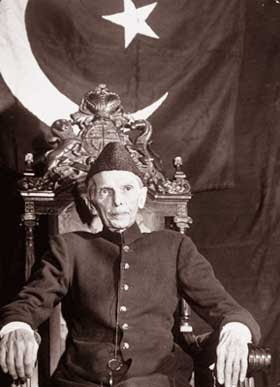The following is my article published in Dawn Images on Sunday, January 16, 2011.

Then, of course, there was form of diversion that would happen when a rented VCR – a prohibited item at that time – was sneaked into a household, and the entire neighborhood might gather around it for watching some illegally imported movie. The pious and the innocent had started turning their backs on the national film industry, in favor of Indian movies.
This winter of our discontent was warmed up a bit by the “summer of ’42”. Nahin Abhi Nahin, directed by the progressive Pakistani filmmaker Nazrul Islam, had been released a few weeks earlier. It had introduced newcomers Faisal Rehman (known by the screen-name “Armaan” at that time), Ayaz and Fauzia Ahmad (known by the screen-name “Aarzoo”). These kids were the talk of the town, and a tie-in advertisement of a certain paan masala had popularized them even among those who had not seen the movie. The movie itself was not perceived to be anything but a coming-of-age comedy at that time, but was it just that? Or did it have some political connotations that were missed by the suspecting censors and may only be discovered in retrospect?
The story begins with the Aligarh syndrome of a poor couple from a village wanting higher education for their son, Armaan (literally meaning aspiration, and apparently an allusion to the 1966 blockbuster movie of that title).
The son grows up, is sent to live in a hostel in the city and accompanies his street-smart roommate Bobby (Ayaz) to a park where the authorities have prohibited the plucking of flowers. “These excessive prohibitions are conspiracy hatched against us by a few fanatics," says Bobby. An old gentleman interrupts him compassionately, "No, my son. This is how we, who are your elders, are offering you guidance." When Armaan takes sides with the old man, Bobby responds by singing a song which, at least in retrospect, can be taken as the most poignant criticism of General Zia's version of "Islamization" to come out during that period: “Kuchh bhi karo yeh rokayn…” (“Whatever we do, they stop us; and object to each and everything; they have got nothing else to do; but they are from a time bygone, and this is a new age, so you better salute it!”). Armaan actually “salutes” the “new age” and is chastised by the memory of a beating from his father (perhaps reminiscent of the famous lashing of the rebels in the earlier days of the martial law regime?).
Armaan wears a burqa while Bobby dons a shirwani and false moustaches so that they may look older and be allowed entry to a theater where the famously tantalizing movie from the Hollywood, Summer of ’42, is being shown “for adults only”. Likewise, the innocent-looking schoolgirl Aarzoo, who develops a liking for Armaan, has very little appetite for the hardcover books handed down to her by her moralizing father, and prefers the thrillers written by James Hadley Chase (the Corgi editions published in those days used to come with notoriously revealing pictures on their covers). In her dream she sings to Armaan, “Bun jao tum filmstar…” (“Become a filmstar…”) but wakes up with a disturbed mind when, in the same dream, she envisions his later years filled with problems stereotypically related with showbiz fame: alcohol, women and loss of true love.
Did these confused fantasies not foreshadow what was actually going to happen soon after the end of the 11-year-long Islamization of General Zia? The schoolgirls of the early 1980s have grown up pretty much the way Aarzoo would have: they are the middle class women of today who patronize Indian soap serials and “permissive” reality shows, while complaining at the same time that the media is corrupting the morals.
Shabnam, the great legend of our silver screen, was presented as herself – in a manner of speaking. As the most popular living legend of our silver screen, she may well deserve to be remembered as the nearest female equivalent of Waheed Murad. In Nahin Abhi Nahin, she is given her own name – “Ms. Shabnam”. Her personal life is depicted, not necessarily as it was in reality, but almost certainly as the cine-goers of the period would have fantasized about it. She is shown to be living independently in a luxury apartment, painting pictures for a living and hanging out in posh restaurants with her female friends. She is easily moved, and has a kind heart, but also possesses a well-developed sense of moral responsibility.
This is the older woman whose gestures of kindness are misinterpreted by Armaan, apparently because the boy’s head is filled with fantasies borrowed from the Hollywood and he cannot help imagining Shabnam as “Dorothy” of Summer of ’42. Armaan’s quest after her – with haunting lyrics from Suroor Barabankvi and music from Robin Ghosh, ‘Saman who khwab sa saman’ – may well mirror the anxieties of the generation growing up under rigid laws and finding its personal space in permissive fantasies. The struggle of Armaan and Bobby to grow up “before their time” (a recurring motif in the film) was remarkably in sync with an era when unrest was boiling up in colleges and universities, mainly over political matters that were not usually seen as the legitimate concerns for students.
Regrettably, just as Armaan fails to realize that Shabnam is not Dorothy, we may have failed to see the difference between our filmmakers and their foreign counterparts. Despite its superb entertainment value and a liberal attitude towards life, Nahin Abhi Nahin is a moral agenda rooted in the vision of the founding fathers of the country. Rather than sounding out of place, Armaan seems to be truly presenting the essence of the whole movie when he speaks his last lines to Aarzoo: “Our elders are right. Flowers that bloom before their time also die premature. I shall eat this fruit but no, not just now (nahin abhi nahin).”



